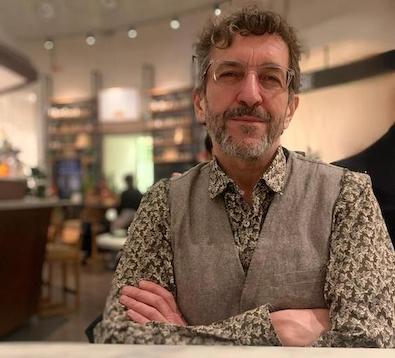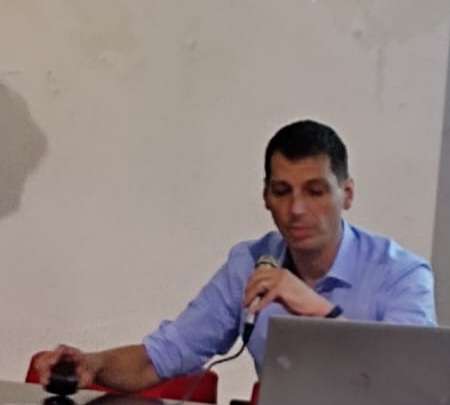Studying at the University of Verona
Here you can find information on the organisational aspects of the Programme, lecture timetables, learning activities and useful contact details for your time at the University, from enrolment to graduation.
Academic calendar
The academic calendar shows the deadlines and scheduled events that are relevant to students, teaching and technical-administrative staff of the University. Public holidays and University closures are also indicated. The academic year normally begins on 1 October each year and ends on 30 September of the following year.
Course calendar
The Academic Calendar sets out the degree programme lecture and exam timetables, as well as the relevant university closure dates..
| Period | From | To |
|---|---|---|
| I semestre - sede Trento | Sep 18, 2017 | Dec 22, 2017 |
| First half of Semester 1 | Sep 25, 2017 | Nov 11, 2017 |
| Second half of Semester 1 | Nov 13, 2017 | Jan 20, 2018 |
| II semestre - sede Trento | Feb 12, 2018 | May 31, 2018 |
| First half of Semester 2 | Feb 26, 2018 | Apr 21, 2018 |
| Second half of Semester 2 | Apr 23, 2018 | Jun 9, 2018 |
| Session | From | To |
|---|---|---|
| Sessione straordinaria- sede Trento | Dec 11, 2017 | Dec 22, 2017 |
| Sessione invernale - sede Trento | Jan 8, 2018 | Feb 10, 2018 |
| Sessione d'esame invernale | Jan 22, 2018 | Feb 24, 2018 |
| Sessione estiva - sede Trento | Jun 4, 2018 | Jul 31, 2018 |
| Sessione d'esame estiva | Jun 11, 2018 | Jul 28, 2018 |
| Sessione autunnale - sede Trento | Aug 20, 2018 | Sep 15, 2018 |
| Sessione d'esame autunnale | Aug 27, 2018 | Sep 22, 2018 |
| Session | From | To |
|---|---|---|
| Sessione estiva | Jul 16, 2018 | Jul 21, 2018 |
| Sessione autunnale | Nov 12, 2018 | Nov 17, 2018 |
| Sessione invernale | Apr 1, 2019 | Apr 6, 2019 |
| Period | From | To |
|---|---|---|
| All Saints Day | Nov 1, 2017 | Nov 1, 2017 |
| Immaculate Conception | Dec 8, 2017 | Dec 8, 2017 |
| Christmas break | Dec 22, 2017 | Jan 7, 2018 |
| Easter break | Mar 30, 2018 | Apr 3, 2018 |
| Liberation Day | Apr 25, 2018 | Apr 25, 2018 |
| Labour Day | May 1, 2018 | May 1, 2018 |
| Patron Saint Day | May 21, 2018 | May 21, 2018 |
| Republic Day | Jun 2, 2018 | Jun 2, 2018 |
| Summer break | Aug 13, 2018 | Aug 18, 2018 |
Exam calendar
Exam dates and rounds are managed by the relevant Culture and Civilisation Teaching and Student Services Unit.
To view all the exam sessions available, please use the Exam dashboard on ESSE3.
If you forgot your login details or have problems logging in, please contact the relevant IT HelpDesk, or check the login details recovery web page.
Academic staff
 bernard.aikema@univr.it (per tutti), aikemaforstudents@gmail.com (per studenti)
bernard.aikema@univr.it (per tutti), aikemaforstudents@gmail.com (per studenti)
 +39 045802 8197
+39 045802 8197

Bassetti Massimiliano
 massimiliano.bassetti@univr.it
massimiliano.bassetti@univr.it
 045802 8376
045802 8376

Chiecchi Giuseppe
 giuseppe.chiecchi@univr.it
giuseppe.chiecchi@univr.it
 +39 045802 8117
+39 045802 8117
 giovanni.ciappelli@univr.it
giovanni.ciappelli@univr.it

Guidarelli Gianmario
 gianmario.guidarelli@univr.it
gianmario.guidarelli@univr.it

Pasini Roberto
 pasini.roberto@univr.it
pasini.roberto@univr.it
 +39 045802 8121
+39 045802 8121
 alberto.scandola@univr.it
alberto.scandola@univr.it
 g.tavano@iuav.it
g.tavano@iuav.it
 emanuele.vaccaro@unitn.it
emanuele.vaccaro@unitn.it
 gianmaria.varanini@univr.it
gianmaria.varanini@univr.it
Study Plan
The Study Plan includes all modules, teaching and learning activities that each student will need to undertake during their time at the University.
Please select your Study Plan based on your enrollment year.
1° Year
| Modules | Credits | TAF | SSD |
|---|
History of Medieval Art I
History of Modern Art I - LM
History of Contemporary Art I - LM
Cultural Heritage Law - LM
History of Art Criticism I - LM
To be chosen betweenContemporary History I - LM
Early Modern History I - LM
To be chosen betweenHistory of Medieval Art II
History of Modern Art II - LM
2° Year activated in the A.Y. 2018/2019
| Modules | Credits | TAF | SSD |
|---|
4 courses to be chosen betweenArchaeology and History of Greek and Roman Art (m)
Contemporary Italian Literature II
History of Classic Tradition (m)
History of Science and Technology - LM
History of Theatre and Performing Arts II - LM
Hystory of Christianity and of the Churches
Italian Literature II - LM
Latin literature I - LM
Medieval Latin Literature II
| Modules | Credits | TAF | SSD |
|---|
History of Medieval Art I
History of Modern Art I - LM
History of Contemporary Art I - LM
Cultural Heritage Law - LM
History of Art Criticism I - LM
To be chosen betweenContemporary History I - LM
Early Modern History I - LM
To be chosen betweenHistory of Medieval Art II
History of Modern Art II - LM
| Modules | Credits | TAF | SSD |
|---|
4 courses to be chosen betweenArchaeology and History of Greek and Roman Art (m)
Contemporary Italian Literature II
History of Classic Tradition (m)
History of Science and Technology - LM
History of Theatre and Performing Arts II - LM
Hystory of Christianity and of the Churches
Italian Literature II - LM
Latin literature I - LM
Medieval Latin Literature II
| Modules | Credits | TAF | SSD |
|---|
Legend | Type of training activity (TTA)
TAF (Type of Educational Activity) All courses and activities are classified into different types of educational activities, indicated by a letter.
Early Modern History I - LM [Sede TN] (2017/2018)
Teaching code
4S003902
Teacher
Coordinator
Credits
6
Also offered in courses:
- Early Modern History I - LM (Historical Anthropology) [Sede TN] of the course Master’s degree in Historical Studies (interuniversity)
Language
Italian
Scientific Disciplinary Sector (SSD)
M-STO/02 - MODERN HISTORY
Period
I semestre - sede Trento dal Sep 18, 2017 al Dec 22, 2017.
Learning outcomes
The course provides a knowledge of the theme proposed, considered in the period from the late Middle Ages to the modern age, through a historical approach of a socio-anthropological and comparative kind.
Program
"Carnival and Lent in the early modern period: between history and anthropology." The two calendrical periods will be examined in their distinctive features primarily through the behaviors attached to them, from their medieval origins to the modern period. Areas considered will be Italy and other European countries (mainly France and the German-speaking areas). Of the contrasting behaviors that take place in the two periods (related to food, sex, holiday or penance, individual and collective, public and private) the course will highlight the possible social, religious and ritual functions, with an emphasis on some anthropological interpretations. Iconography too will be analyzed among the possible sources.
| Author | Title | Publishing house | Year | ISBN | Notes |
|---|---|---|---|---|---|
| Giovanni Ciappelli | Carnevale e Quaresima. Comportamenti sociali e cultura a Firenze nel Rinascimento (Edizione 1) | Edizioni di Storia e Letteratura | 1997 | 88-900138-7-7 | |
| Peter Burke | Cultura popolare nell'Europa moderna (Edizione 1) | Mondadori | 1980 | ||
| Nathalie Zemon Davis | Le culture del popolo. Saperi, rituali e resistenze nella Francia del Cinquecento (Edizione 1) | Einaudi | 1980 | ||
| Peter Burke | Scene di vita quotidiana nell'Italia moderna (Edizione 1) | Laterza | 1988 |
Examination Methods
The examination will consist of: 1. a FINAL WRITTEN EXAM, based on knowledge of the texts indicated (see section Testi), the materials distributed during the lectures and class notes; 2. a PAPER (of 10-15 pages on a topic agreed with the professor). The paper must be sent to the professor NOT LESS THAN TWO WEEKS before the EXAMINATION DAY (in ways to be agreed with the professor during the course or by e-mail).
Type D and Type F activities
| years | Modules | TAF | Teacher | |
|---|---|---|---|---|
| 1° | Lectures "Musiche/Culture/Civiltà" | F |
Vincenzo Borghetti
(Coordinator)
|
|
| 1° | Methodologies for identification of works of art | F |
Enrico Dal Pozzolo
(Coordinator)
|
|
| 1° 2° | Sigecweb computer system introduction course | F |
Tiziana Franco
(Coordinator)
|
|
| years | Modules | TAF | Teacher | |
|---|---|---|---|---|
| 1° | Methodologies for identification of works of art | F |
Enrico Dal Pozzolo
(Coordinator)
|
|
| 1° 2° | Sigecweb computer system introduction course | F |
Tiziana Franco
(Coordinator)
|
|
Career prospects
Module/Programme news
News for students
There you will find information, resources and services useful during your time at the University (Student’s exam record, your study plan on ESSE3, Distance Learning courses, university email account, office forms, administrative procedures, etc.). You can log into MyUnivr with your GIA login details: only in this way will you be able to receive notification of all the notices from your teachers and your secretariat via email and soon also via the Univr app.
Manifesto degli studi
Manifesto degli studi del CdLM interateneo in Arte
Documents
| Title | Info File |
|---|---|
|
|
pdf, it, 56 KB, 15/07/22 |
|
|
pdf, it, 59 KB, 17/04/23 |
Linguistic training CLA
Student login and resources
Gestione carriere
Double degree
The University of Verona, through a network of agreements with foreign universities, offers international courses that enable students to gain a Double/Joint degree at the time of graduation. Indeed, students enrolled in a Double/Joint degree programme will be able to obtain both the degree of the University of Verona and the degree issued by the Partner University abroad - where they are expected to attend part of the programme -, in the time it normally takes to gain a common Master’s degree. The institutions concerned shall ensure that both degrees are recognised in the two countries.
Places on these programmes are limited, and admissions and any applicable grants are subject to applicants being selected in a specific Call for applications.
The latest Call for applications for Double/Joint Degrees at the University of Verona is available now!
Graduation
List of theses and work experience proposals
| theses proposals | Research area |
|---|---|
| Ambiti di tesi | Art & Architecture - Art & Architecture |
Student mentoring
Stage e tirocini: FAQ
Laurea Magistrale interateneo in Arte LM-89Università degli Studi Trento e Università degli Studi di Verona
FAQ degli studenti in materia di TIROCINIO o STAGE, e relative risposte
1- Posso attivare un tirocinio o uno stage già dal primo anno?
Certamente: consigliamo di progettare questa esperienza e avviare la procedura il prima possibile.
2- Il tirocinio comporta sempre l’acquisizione di 6 CFU corrispondenti a 150 ore?
Sì, dato che riteniamo che solo così lo studente possa fare un’esperienza di lavoro davvero proficua.
In UniTn è anche possibile svolgere uno stage più lungo, ma i CFU acquisibili sono sempre al massimo 6.
In UniVr i CFU maturati dipendono dal monte ore svolto; quelli registrabili per tirocinio sono previsti dal piano in un massimo di 6 e vanno in ambito F.
3- Posso valutare eventuali proposte di stage indicate dall’Università di Trento o dall’Università di Verona, indipendentemente dall’Ateneo cui sono iscritta/o?
Certamente: la nostra è una laurea interateneo a tutti gli effetti. Una volta individuato il tirocinio nell’offerta formativa di UniTn o di UniVr, lo studente effettuerà l’attivazione nell’ateneo in cui la convenzione è attiva; pertanto, la gestione organizzativa è sempre in seno alla sede che possiede quello specifico accordo. Lo studente quindi sceglierà come tutor un docente incardinato in quello specifico ateneo, ma l’esperienza formativa sarà registrata nella carriera dalla sede che ha in capo la gestione amministrativa del corso di Laurea Magistrale in Arte [n.b.: la sede amministrativa si alterna fra i due atenei, con scadenza biennale; dal 2018/19 al 2019/20 la sede è UniTn, dal 2020/2021 al 2021/2022 la sede sarà invece UniVr].
4- Posso scegliere autonomamente l’istituzione o l'azienda in cui svolgere il tirocinio, o devo limitarmi alle possibilità di stage già convenzionate con UniTn e UniVr?
Certo: caldeggiamo le scelte autonome, anche al fine di ampliare i contatti del nostro corso di laurea con chiunque lavori nell’ambito dei beni culturali.
5- Dove trovo l’elenco delle istituzioni e aziende con cui UniTn e UniVr hanno già avviato una convenzione?
È possibile prendere visione di tutte le imprese/enti che hanno attivo un contatto per stage nel modo seguente:
- con l’Università di Trento entrando in Esse3: https://www.esse3.UniTrento.it/Home.do (> fare login con le credenziali UniTn; > cliccare dal Menù su Stage e Lavoro; > Aziende). In calce a questo documento sono indicate alcune fra le principali istituzioni attive nel campo dei beni culturali in Trentino-Alto Adige, che spesso offrono ai nostri studenti la possibilità di svolgere un tirocinio.
- con l’Università di Verona entrando in Esse3: https://UniVerona.esse3.cineca.it/Home.do, oppure sul sito del Comune di Verona al link: https://www.comune.verona.it/nqcontent.cfm?a_id=1419, dove lo studente ha la possibilità di individuare autonomamente la struttura ospitante in relazione alle proprie esigenze. È possibile prendere visione di molte imprese/enti che hanno attivo un contatto per stage con l’Università di Verona nell’elenco in calce
6- Come si attiva una nuova convenzione?
Il procedimento, più semplice di quanto si possa immaginare, è descritto sul portale UniTn, nella sezione curata da JOB GUIDANCE https://www.jobguidance.UniTrento.it/, alla voce “attivazione stage” [nota bene: la procedura richiede di norma 15 giorni lavorativi].
Attenzione però: prima di chiedere all’azienda individuata di avviare le pratiche per attivare una convenzione con UniTn o UniVr, è bene che lo studente sottoponga tale proposta (anche con una semplice mail) a uno dei due responsabili degli stage per tutto il corso di Laurea Magistrale in Arte [n.b.: al momento tali responsabili sono i professori Alessandra Galizzi Kroegel e Denis Viva, entrambi di UniTn].
La procedura di attivazione del tirocinio per quanto riguarda UniVr è descritta nell’area Intranet MYUniVr nella sezione:
- studenti: http://www.UniVerona.it/ (MyUniVr > Servizi> Didattica > Stage e Tirocini)
- aziende: http://www.UniVerona.it/it/i-nostri-servizi/servizi-per-aziende/stage-e-tirocini
7- Una volta scelto dove svolgere lo stage, devo fare sempre riferimento all’ateneo in cui in quel momento la Laurea Magistrale in Arte ha la sua sede amministrativa, oppure posso appoggiarmi all’ateneo cui sono iscritta/o, ad esempio nella scelta del tutor universitario?
Poiché il tirocinio può essere svolto a Verona come a Trento (o altrove), in linea di massima lo studente può scegliere il tutor universitario che ritiene più adatto in relazione ai contenuti e agli obiettivi formativi del tirocinio. D’altra parte, come si è già indicato al punto 3 di queste FAQ, per l’attivazione di uno stage convenzionato con UniTn si dovrà scegliere un docente dell’Ateneo di Trento; viceversa, per l’attivazione di uno stage convenzionato con UniVr si dovrà scegliere un docente dell’Ateneo di Verona.
8- Una volta che ho scelto sia l’azienda/ente presso cui svolgere lo stage, e che ho contattato i miei due tutor (quello aziendale e quello universitario), come devo procedere?
In UniTn, il tutor aziendale dovrà compilare, con il supporto dello studente, la bozza di progetto formativo in Esse3. Successivamente la bozza di progetto dovrà esser sottoposta dallo studente al suo tutor universitario, che dovrà dichiararsi d’accordo. A questo punto lo studente potrà inviare una mail con quella bozza (mettendo il tutor universitario in CC) a uno dei due responsabili degli stage per tutto il corso di Laurea Magistrale in Arte (vedi sopra). Spetta infatti a questa/o responsabile dare l’approvazione finale al progetto, necessaria ad avviare lo stage a tutti gli effetti.
Per le convenzioni attivate attraverso UniVr, il tutor aziendale accede ad Esse3 per compilare il progetto formativo e di orientamento concordato con lo studente. Lo studente accede al proprio profilo on line Esse3 dal menù in alto a destra cliccando su “Tirocini e stage - Gestione tirocini”, alla voce “I miei stage”:
- clicca sul pulsante "Accetta progetto formativo";
- clicca sul pulsante "Stampa progetto formativo" per stampare n. 3 copie di progetti formativi (una per l’ufficio, una per lo stagista, una per l’azienda) e nel frattempo ottiene le firme necessarie;
- clicca sul pulsante "Richiedi riconoscimento crediti";
- attendi la stipula della convenzione (se l’azienda/ente ospitante non ha già una convenzione attiva) e verifica che sia attiva consultando il referente aziendale;
- effettua il corso sulla sicurezza nei luoghi di lavoro (obbligatorio per legge) e consegna l’attestato di superamento al tutor aziendale; il corso è disponibile nella sezione "MyUniVr" nella sezione “Altre attività on-line cui sono iscritto”;
- consegna all’Ufficio Stage e Tirocini n. 3 progetti formativi almeno 7 giorni prima dell’inizio dello stage; tutti e 3 i progetti devono essere firmati dallo stagista, dal tutor aziendale e dal tutor accademico (un docente scelto dallo stagista tra i docenti appartenenti al proprio corso di studio);
- i progetti possono essere consegnati durante l’orario di apertura dello sportello (lunedì, martedì e mercoledì dalle ore 10 alle ore 13, oppure giovedì dalle ore 14 alle ore 16).
9- Quando nel Regolamento UniTn si parla di "stage interno", si intende un’esperienza da svolgersi esclusivamente presso l'Università di Trento o è previsto anche l’Ateneo di Verona?
No, si intende solo un’attività da svolgere presso l’Ateneo trentino.
Allo stesso modo, per stage interni a UniVr si intendono le esperienze attivate in strutture, dipartimenti e laboratori dell’Ateneo di Verona.
10- Il tirocinio è obbligatorio, oppure può essere sostituito con esami di ambito D o F?
Il tirocinio può essere sostituito solo da attività corrispondenti a crediti F.
Presso le istituzioni e le aziende del Trentino-Alto Adige/Südtirol indicate di seguito, tutte già convenzionate con UniTn, gli studenti trovano spesso la possibilità di svolgere uno stage (n.b.: esistono numerose convenzioni di Unitn con enti di questa o di altre regioni, così come con istituzioni straniere, che lo studente potrà trovare elencati come descritto al punto 5):
- MART Museo di arte moderna e contemporanea di Trento e Rovereto, Rovereto
- MART Galleria Civica, Trento
- Museo Diocesano Tridentino, Trento
- MUSE Museo della scienza, Trento
- Castello del Buonconsiglio, Trento
- Soprintendenza per i beni culturali Trento
- Museo Storico del Trentino, Trento
- Annamaria Gelmi, artista, Trento
- Museo Storico Italiano della Guerra, Rovereto
- Museo degli Usi e Costumi della Gente Trentina, San Michele all’Adige
- Biblioteca di San Bernardino, Trento
- Museo della Scuola, Bolzano
- Museo Civico, Bolzano
- Fondazione Museion, Bolzano
- MAG Museo Alto Garda, Riva del Garda e Arco
- Studio d’Arte Raffaelli, Trento
- Fondazione Museo Civico, Rovereto
Di seguito sono riportate alcune delle strutture già convenzionate con UniVr, presso le quali può essere effettuato il tirocinio per gli studenti che scelgono l’ateneo di Verona:
- Accademia di Agricoltura Scienze e Lettere, Verona
- AGEC - azienda gestione edifici comunali del comune di Verona
- Associazione Culturale Urbs Picta, Verona
- Associazione Pro Terra Sancta, Milano
- Casa Shakespeare Impresa Sociale, Verona
- Centro Internazionale di Studi di Architettura 'Andrea Palladio', Vicenza
- Circolo Noi - Oratorio San Zeno, Bagnolo
- Comitato per il Verde, Verona
- Comuni di Brescia, Garda, Grezzana, San Giovanni Lupatoto, Valdagno, Verona
- Confederazione Italiana Associazioni e Fondazioni per la Musica Lirica e Sinfonica, Verona
- Cooperativa sociale Cultura e Valori, Verona
- Festival Opera Prima E.T.S., Rovigo
- Fondazione Brescia Musei, Brescia
- Fondazione CUOA, Altavilla Vicentina
- Fondazione Discanto, Mozzecane
- Fondazione La Biennale di Venezia, Venezia
- Fondazione Magnani Rocca, Mamiano di Traversetolo
- Fondazione Palazzo Te, Mantova
- Fondazione PInAC, Virle
- Fondazione Trentina A. De Gasperi, Trento
- Fondazione Ugo da Como, Lonato del Garda
- Fondazione Verona Minor Hierusalem Verona
- Gallerie degli Uffizi, Firenze
- Impresa Zambelli srl, Verona
- Infoval srl, Grezzana
- La Melagrana, Società Cooperativa
- Libre! Società Cooperativa, Verona
- Libreria Terza Pagina, Villafranca di Verona
- Manpower s.r.l., Verona
- Ministero per i Beni e le Attività Culturali - Archivio di Stato di Verona, Verona
- MART Museo d'arte moderna e contemporanea di Trento e Rovereto, Rovereto
- Museo Diocesano Tridentino, Trento
- Museo Storico Italiano della Guerra, Rovereto
- MV Eventi, Lonigo
- Opera Diocesana S. Pietro Martire per la preservazione della Fede, Novaglie
- Prefettura di Verona - Ufficio Territoriale del Governo, Verona
- Progetto Arte Poli s.r.l., Verona
- Provincia Autonoma di Trento, Trento
- Provincia di Verona, Verona
- Studio d'Arte Raffaelli, Trento
- Studio La Città, Verona
- Ualuba.org Associazione Culturale Non Profit, Brescia
- Camino Barcelona, Barcellona, Spagna
- Instituto Hispanico de Murcia, Murcia, Spagna
- Musée du Louvre, Parigi, Francia
- Estudio de Conservacione y Restauracion maite bejar, Siviglia, Spagna
- Museum Funf Kontinente, Monaco di Baviera, Germania


























